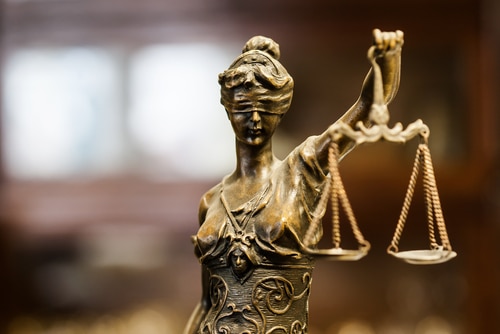In the United States, every citizen has basic rights that protect them against discrimination, harassment, and injustices. These basic rights are called civil rights. When your civil rights are violated, you deserve justice. This is where a civil rights lawyer comes in.
These lawyers specialize in civil rights cases and are here to uphold your rights. Through careful processes and tireless work, they fight to help people like you pursue justice for the violation you experienced.
Understanding Civil Rights
Simply put, a civil right is an enforceable right or privilege that protects individuals against discrimination.
As an American, your civil rights are the personal rights that the U.S. Constitution and federal laws, such as the Civil Rights Act of 1964 or the Voting Rights Act of 1965, guarantee and protect. These rights protect Americans from unlawful discrimination based on race, national origin, religion, disability, age, color, and sex, among other things.
These rights are a fundamental part of American society, a result of the tireless efforts of activists, lawyers, and everyday citizens who fought for equality and justice. They’re crowning achievements, marking a substantial shift that veers from the vulnerability of discrimination, harassment, and injustice toward respect, dignity, and fairness.
For example, the Civil Rights Act of 1964 made waves in the years that followed, serving as a landmark piece of legislation that protects individuals against discrimination on the basis of race, color, religion, sex, or national origin. It was this piece of legislation that helped end segregation and discrimination in public spaces, such as schools and workplaces, defining a new era of American society.
The Role of a Civil Rights Lawyer
A civil rights lawyer is a legal professional who specializes in representing clients who have been victims of discrimination, harassment, or other violations of their civil rights. They fight for justice and equality, combatting discrimination in various settings to uphold the rights of their clients.
Civil rights lawyers advocate for their clients’ rights, ensuring they’re treated fairly and justly. They may represent their clients in various legal proceedings, such as a lawsuit, arbitration, or administrative hearing.
To aid their clients, civil rights lawyers perform a variety of tasks, including:
- Reviewing the situation to help the individual determine their legal options
- Researching applicable laws and statutes to build a case
- Drafting legal documents
- Negotiating settlements on for clients
- Representing clients in court to uphold their rights
- Remaining up to date with new legislation applicable to their practice area
Areas of Practice for Civil Rights Lawyers
Civil rights violations can occur in many situations and settings, from the workplace to interactions with the police. Civil rights lawyers may specialize in a specific practice area, focusing on discrimination in a particular area.
A civil rights lawyer can practice in various areas, including:
- Education and school-related discrimination
- Employment discrimination and workplace harassment
- Housing and accommodation discrimination
- Police misconduct and brutality cases
- Discrimination based on gender, race, religion, or disability
If you’ve experienced a civil rights violation in a specific area, talk to a lawyer specializing in it, as laws are complex and can vary from one area to the next.
How Do I Know If I Need a Civil Rights Lawyer?
If your civil liberties have been violated, you may need the services of a civil rights lawyer. For example, if you’ve been mistreated based on your gender, religion, disability, or race in these common violations, you may need a lawyer:
- Loss of a job due to discrimination
- Skipped for a promotion due to discrimination
- Unreasonable searches or seizures
- Housing denial due to personal identity
- Discriminatory harassment
- Any discrimination stemming from a superficial quality or belief
If you’re unsure whether your civil rights have been violated, talk to a skilled civil rights lawyer. Your lawyer can evaluate the situation and offer insight into your legal options based on the specifics.
What to Expect When Working With a Civil Rights Attorney
While every case is unique in the challenges it may bring, the core process of working with a civil rights attorney generally remains the same.
After contacting the attorney, the first step usually involves a consultation. During the first consultation, your attorney will ask you questions about your case, including what happened, who was involved, and what your goals are for the case. Do your best to be as accurate as possible, honest, and forthcoming during this conversation, as this will help your attorney create a robust case strategy.
In the following days and weeks, your attorney will begin investigating your case. This process often involves reviewing documents, interviewing witnesses, and gathering evidence to support your claims. The timeline for this process can vary, as it can take time to build a strong case.
After collecting the necessary information through the investigation, your lawyer will start drafting legal documents and prepping for necessary legal proceedings. This process can vary from case to case, as some may end with a settlement, while others may go to trial.
Through the process, your lawyer will keep you informed of any updates or changes pertaining to your case. They can answer any questions or concerns you may have along the way, providing guidance and support to help you make informed decisions.
Get Personalized Assistance With Your Civil Rights Case
The laws surrounding civil rights violations can be complex, making it tricky to determine whether you have a legal leg to stand on. If you’re unsure whether your civil rights have been violated or if you have the grounds for a lawsuit, our experienced team at Jezic & Moyse can help.
Our civil rights lawyers have been upholding the rights of people across Maryland, Virginia, and Washington, D.C., and can help you by doing the same. Contact us today to learn more about how we can help you.

